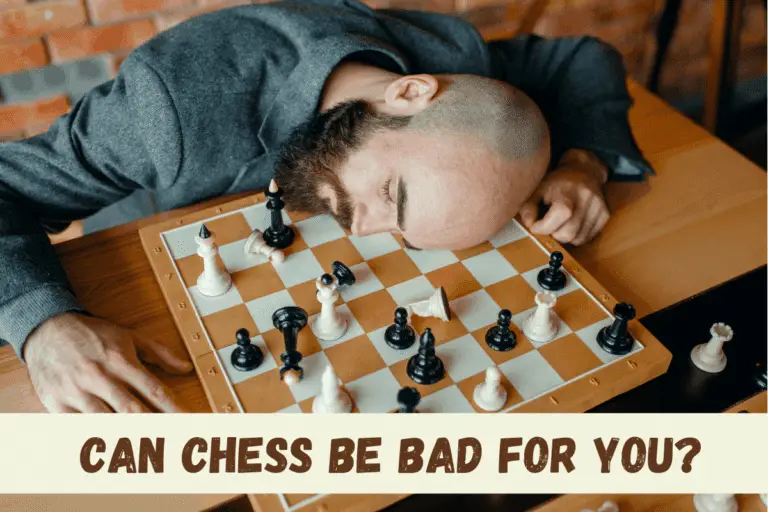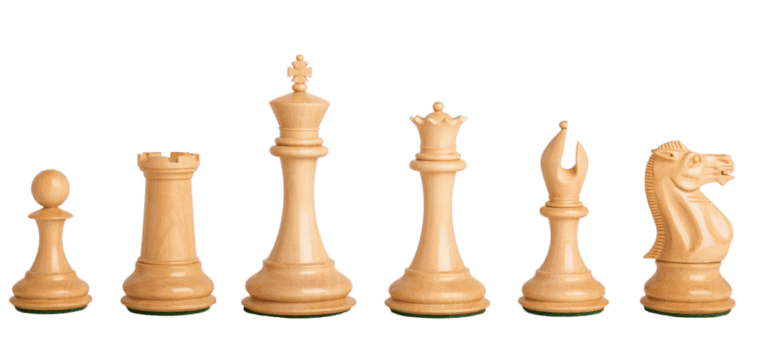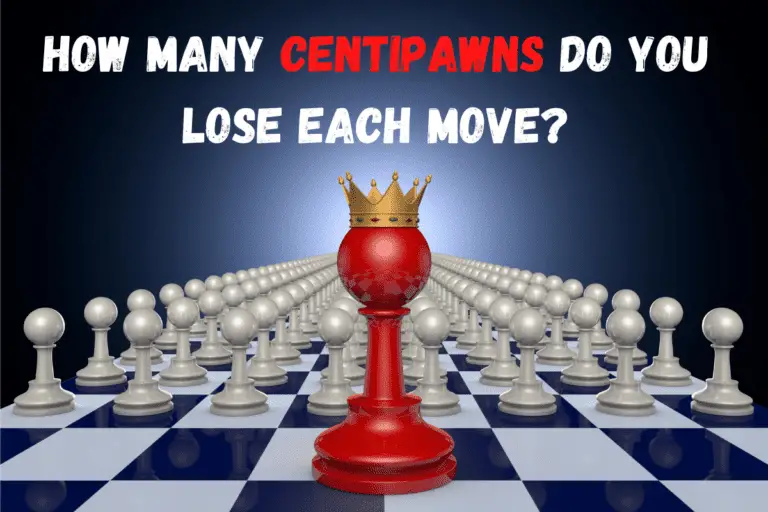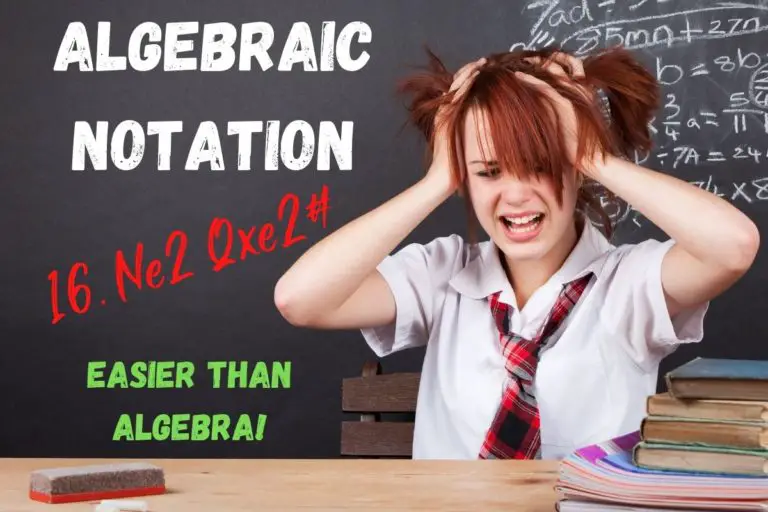Can Chess Sharpen Your Mind
⭐⭐⭐ Take 6 minutes to read and improve your chess game ➡️ : This article was first published on, and is Copyright of Chessquestions.com
Playing a game of chess from the first moment you can accurately remember the pieces and what they can do you may already have been feeling the positive effects that the game has on your mind. A common question that starts to arise in those around you, or one that you simply wonder about when raising your children, is whether or not chess can help to sharpen your mind.
Playing chess provides many benefits to sharpen your mind as well as improve your memory. Studies have shown positive effects in thinking power with both sides of the brain being utilized to consider and make decisions within a chess match scenario.
Understanding completely how chess will help with your mental development, problem-solving skills and creative thinking skills, or those of your children can be vital to motivating your to constantly work towards focusing on the game. Many players can succeed in many parts of their lives simply because they have been sharpening their minds for as long as they have been playing the game. There is a reason that chess is one of the oldest games in history that is still celebrated and played to this day.
Does playing chess make you smarter?
In general, terms playing chess and improving in the game does make you smarter, this is because the skills required to play the game successfully require the same skill used in studies like maths, literacy, and any other field that requires brainpower. The connection between being smart and playing chess is not there by accident, however, measuring this connection accurately can be a challenge.
Most people that are considered traditionally smart will love to play chess, which is why it has become so closely connected to being smart and cognitive ability. However, this is not always accurate as the skills required for chess may be extremely refined, but the person using the skills may not have branched out to expand these skills into arts, maths, sciences, or even books.
An example of how this connection can be wrong is that a brilliant chess player that has shown no interest in maths their whole lives may not be any better at maths than the average person. However, someone that has shown an extreme amount of brain power for maths from a young age but has never played chess may be beaten by the most basic of players.
Does chess enhance your thinking?
Yes, because of the way that chess stresses the brain when played it does enhance your thinking by a great deal. Usually, people will are playing chess for a long time will not be able to concentrate on much of anything after the game. In the same way that playing a sport for several hours on end, chess puts stress on the mind and can lead people to have more thinking power.
It may seem simple but the old saying that the brain is like a muscle has never been a lie, the more brain exercise the stronger it becomes, like a muscle that is being stretched. Because of all the ways that chess stresses the mind, the activity can greatly strengthen the mind. Allowing those who use it to learn new skills comfortably and easily should they choose to.
The mere decisions of having to constantly think about new strategies, techniques, skills, and moves already require an immense amount of thinking power. The more you play chess games the more this part of your mind is stressed, leading you to easily and comfortably increase the total thinking power that you have. A chess student that has played chess will have abilities to easily and comfortably do critical thinking that those that do not play may not be able to do.
What are the ways playing chess can help strengthen your mind?
Understanding how chess is healthy for your mind and how it strengthens your mind is a vital thing to understanding the full benefits the expert chess players recieve. Whether competitive chess players or only playing the game when you have the chance over the weekend with friends there are clear benefits that the game has. This is why you can usually see people actively looking for someone to play with if they have no one nearby.
Many of the healthiest parts of a mind has been connected to how well the minds of chess players work and use of critical thinking skills. The game requires utilizing almost the full capabilities of your mind, increasing the healthy growth that it can experience while usually getting people to increase cognitive functions comfortably and easily. There are several benefits that people of all ages can gain from playing chess and knowing what these are may just help you convince those around you to play as well.
Improve Memory:It may not seem obvious after the first five, ten, or hundred games that you are playing but playing chess greatly improves your memory. The game requires critical thinking but also that you remember what your opponent is doing, their behavior, and several other behaviorisms that can influence the game.
Alternate thinking:If you play against the same opponents constantly you may never have to think too much out of the box. However, chances are that you are constantly looking for new people to play with, causing you to quickly learn new ways of playing. This physically builds new pathways between the neurons in your mind, enabling you to think in different ways that may usually require a lot of practice.
Sharpens Intelligence:Like all things that you practice, the more you do it the easier it becomes. The bot you are training against may be difficult the first few times, however, after a while, it becomes extremely easy. In the simplest sense, this is your already existing intelligence being sharpened and chess has this effect on almost every aspect of intelligence that you have.
Whole-brain function:Many times people that start failing from some part of their brain not working properly will usually not be using those parts of their brain that often. This is why not practicing things regularly leads to your mind becoming weak in those aspects, however, chess has been shown to do something unique. A chess player usually shows that their entire mind is being used when playing even an average game, this drastically improves the overall function of their minds.
Raise IQ:IQ is a tricky subject that people face, with many people not always realizing that IQ is not meant to measure how much you currently know or how smart you are at that moment. Instead, IQ attempts to measure the potential that your brain has, and chess can drastically raise this level in children and teenagers as the game continues to flex their minds and improves their brains.
What are the skills that chess help develop?
There are four real-world skills that chess directly helps to improve that you will quickly start noticing in yourself or your children. The first being the reading skills, with children exposed to chess from a young age not only easily grasping the skill but excelling in it. While the second and most important aspect of chess that is related to real-world skill being concentration.
Further, the requirement of chess experts to plan and have some foresight into the moves of the opponent. This translates to the real-world skill of happily increasing the cognitive skills of those who love to play, allowing anyone that plays the game to easily plan for the immediate future and have some concept of what could happen.
And the last skill that is greatly increased by chess is that of creativity, with many people not always realizing that this brain activity is a skill that needs to be practiced. At first, chess may seem like a game of simple reaction and planning, however, the creativity to respond in a proper way to an opponent is more important than any book move strategy.
Conclusion
Chess not only sharpens your mind but greatly increases the overall health of the most important part of your body. Easily and comfortably increasing the skills you and your children may need in the future, with many people enjoying the fact that chess is a good way to ensure constant brain health.
Chess instruction from a coach or chess puzzles online is a healthy and fun past-time. Be careful not to become too engrossed as chess addiction is a real thing and can come with its own problems, but overall, solving the problems associated with trying to win at chess is a healthy activity for your brain cells. Not to mention the social benefits of interaction with people either playing chess or in online game communication.
Skilled chess players and even grandmasters will mix up the time playing chess to ensure that other healthy activities like exercise are part of the plan too. Excercise is as important for your health as developing your brain and chess skill and many experienced chess players will use walking and fresh air as a benefit to their concentration back on the chess board.






